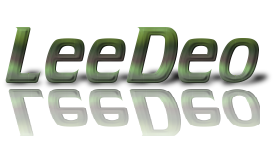Overview

The LeeDeo Project: Executive Summary
Among existing digital libraries that are currently serving many users, there are a few large-scale digital libraries that are in particular geared for academics. For instance, popular bibliographic digital libraries such as arXiv, PubMed, CiteSeer, or DBLP ave proven to be immensely useful for diverse users on the Web who are looking for research articles or metadata therein. Some of such digital libraries exploit the hyperlinks on the Web in crawling, gathering, and updating contents (e.g., CiteSeer), while others more rely on manual curation by editors (e.g., DBLP) or voluntary submissions of articles from users (e.g., arXiv). Although varies, major format supported by such digital libraries is a paper-form of "article” or “thesis”.
As technologies rapidly advance, however, we envision that the way scholars disseminate their findings in this hypertext era be substantially augmented. For instance, in addition to publishing research articles in publication outlets, scholars may summarize their findings in a short video clip and circulate it for wider dissemination in YouTube. Similarly, increasingly more publishing venues record presenter's presentation as a video clip for sharing on the Web, and colloquium or seminar talks are frequently recorded and posted to departments' web pages. Furthermore, many schools start to post instructors' lectures as video clips and/or podcast to the Web for wider audience (e.g., MIT’s Open Course Ware). Potentially, such multimedia-rich mediums are very useful for many people, yet there is NO known digital library that provides a single portal to such mediums.
| Academic Papers | Academic Videos | |
| Manual | arXiv, PubMed, DBLP | Open Course Ware, Open Video, VideoLectures |
| Crawled | CiteSeer, Google Scholar | LeeDeo |
Above table illustrates four possible types of academic digital libraries, where columns indicate whether an academic digital library archives paper-forms or videos, and rows indicate whether a digital library is created (semi-)manually in a small scale or built by crawling the Web in a large scale. Our proposed framework, termed as LeeDeo (originally meaning "LEE's viDEOs" to refer to a collection of educational video materials that Prof. Dongwon Lee has collected for his teaching, but now extended to mean "LEarning and Educational viDEO search engine and digital library framework"), fits into the lower right quadrant such that a digital library is to be built mostly by crawling academic videos (and audios) on the Web. To our best knowledge, LeeDeo is the first attempt to build large-scale academic video/audio digital libraries using the search engine paradigm. In a sense, one can view LeeDeo this way:
LeeDeo = Google Scholar + YouTube
For further questions, please contact the PI of the project: Dongwon Lee
(dongwon@psu This project is in part supported by NSF and Microsoft awards.
$ Last generated: Fri Apr 16 13:31:57 2010 EST $

